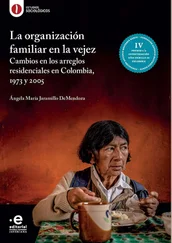“Lisa,” he says.
She remembers, just in time, not to say Doctor. But when she utters his name, quietly, it comes out wrong, blunted and slurred. Amos. They face each other, breathing in and out.
“There’s nothing you need to tell me?”
“No.”
His eyes are large and tired and faintly wet. They blink. “But there is something you want to tell.”
She doesn’t answer.
“I think we should meet one on one.”
She is heavily conscious of her body in the room and, though she is dressed, she wishes she had something — a bathrobe, a blanket — to cover herself with. There is an intimacy between them — between the therapist and his idea of her — that makes her feel disturbed and excited and envious. Because it’s her intimacy, the other Elisa’s. She pictures that woman in her own real body, trapped in it, in her thin body and vacant marriage, driving out here, pulling over at the side of the road, gazing at the therapist’s house and office with loneliness and longing.
And like that, she has an epiphany. In her real life, she is lonely.
“We’ve come a long way together,” says Amos Finley. “You know you can tell me anything. Don’t you?”
“Yes.”
“When you’re ready.”
She is moved, suddenly. She sort of wants to hug him. He seems to notice and draws back, almost imperceptibly.
“All right,” she says.
He smiles, slides his glasses back onto his face. His eyes recede and focus and he holds his palm out, inches from her shoulder, and says, “Go to your husband.”
She tells Derek she’ll be going in to work early every day, in order to reorganize things. He agrees to drive her, though she wishes she could just drive herself — but never mind. This still buys her an extra hour and a half alone, at the office, studying… this job, ostensibly, but actually, this life.
She has found several very old e-mails to Sam in her sentbox, overly cheerful exhortations to take care of himself and not drink excessively and not be hurt by the things his brother says and does. The tone embarrasses her — it’s artificial, desperate. These chipper notes stopped more than a year ago, and don’t appear ever to have been answered. He is living in Santa Monica, apparently the same place Silas lives. Why?
She needs to call him.
It is Wednesday morning. She is sitting in her office. Her inbox is filled with responses to her queries: people have sent her project updates and status reports, as she requested. She reads them, and begins work on a slate of recommendations for the reorganization of the office. It isn’t hard. They won’t have to fire Becca. She will have Judith read it at the end of the week.
Elisa is disturbed, a little bit, at the ease with which she is occupying this position, one she had no inkling even existed just two days ago. Does this say something about her? Are her talents so generic as to be adaptable to any job? Or is this job so generic that anyone could do it?
More vexing still is the way the job foregrounds, in her mind, the reasons she left science in the first place. She was convinced, remains convinced, that if the world of biology had consisted solely of herself, a lab, and an unlimited budget, she would still be doing it. Indeed, she would be very, very good at it. As an undergraduate, she had been part of a genomics project right on the forefront of the field; she was the only undergraduate on the team, and the only woman. At first she thought she’d arrived — that to have crossed those lines was to have been accepted.
But of course it didn’t work that way. To the other students, even to her professor, her inclusion gave them license to let their guard down, to indulge their pettiest selves. She was mocked the day she wore a skirt, then mocked the rest of the time for wearing jeans. She was told, many times, that her safety goggles flattered her, or didn’t flatter her. A tittering tour group, passing through the building, was presented with “the girl scientist.” Then she made the mistake of dating a grad student for a couple of months, a man of lesser intelligence to whom she was supposed to defer; and when they broke up, his friends on the team ignored her questions, sabotaged her work, talked about her in stage whispers when she was in the room. “Hey!” she called out one night in the crowded lab, “Will somebody please look at me and answer my fucking question?” It was her ex who answered, to the amusement of his friends, “I thought you didn’t like people looking at you. We’re just trying not to be sexist. ”
Her professor, who before had treated her with a certain amount of respect, now came on to her. “You look pretty today,” he said, and when she replied “Please don’t talk to me that way” a heavy curtain came down between them and he never asked her to do anything again.
The project was tainted. She tried to get on another, to no avail. People told her she was crazy to want to quit. Her adviser, the only woman in the department, told her this. “That project is going somewhere,” she said. To Elisa’s complaints of sexism, of bullying, of disrespect, the woman turned steely. “I’d like to send you back in time twenty years and see how you like it.”
She hated the bureaucracy. She hated the corporate money, the suggestion that certain outcomes were acceptable to the administration and certain outcomes weren’t. She hated the fact that all the people working in the department office were women and all but one of the professors were men.
Now, here, she has become one of the women in the all-woman office, in a department where all the professors are men. They are decent people, the professors who are here this summer, but she is not real to them: they don’t acknowledge her as anything more than an office worker. Even at her lab job, in the real life, even when she is doing the same kind of organizational work she does here, she is regarded as a person who does science. But this job seems to have been perfectly okay with the Elisa Brown who accepted it.
Then again, why should anyone treat her differently? And maybe part of being a good scientist is knowing how to parry insults, how to navigate bureaucracies. How to seize authority and respect, rather than waiting for them to be conferred. Indeed, maybe these are the defining traits of a good scientist — maybe the things that made her think she was a good scientist thwarted, were actually clues that she was not a good scientist at all. And maybe this Elisa has, for better or worse, accepted that.
She considers, briefly, that perhaps the same could be said about being good at marriage. Or parenthood.
It makes sense, she supposes, that in this world where Silas is alive, she isn’t in touch with him. But Sam? It’s hard to imagine the offense that would drive him away — that would compel him to move to California, to live near his brother, and never answer her e-mails. Maybe they write letters — there could be letters somewhere, tucked into a drawer or cubbyhole somewhere at the house. She’ll look later, when she gets home, but somehow she doubts it.
When things were at their worst — with Silas, and with Derek, too — she could always talk to Sam. Even when he was small, when he could barely speak, he was interesting to talk to — habitually quiet, he became voluble when they were alone, asking questions, remarking on the scenery, trying to figure things out. He would be the scientist, she thought. He wanted to know how things worked. He had ideas about how they might — compelling ones. By the time he was five or six his questions fell outside her ability to answer, what-ifs about the nature of time, existence, the limits of the universe. He did excel at science in school, for a while, but his grades suffered as Silas intruded more and more upon their lives, and they never really recovered, even after the accident. By then Sam had come to think of himself as an indifferent student, and so he was.
Читать дальше












